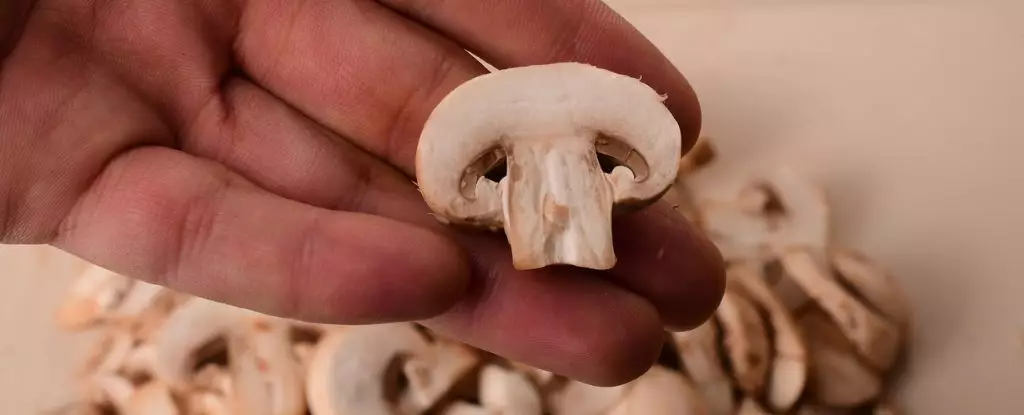When one thinks of medicinal fungi, images of exotic varieties like Lion’s Mane or Reishi often come to mind, celebrated for their unique health benefits and wellness properties. However, the more common white button mushroom (Agaricus bisporus) might be overshadowed but is emerging as a contender in the realm of cancer treatment. Despite being the most widely cultivated edible mushroom globally, it has not received the same level of attention as its extraordinary counterparts. Recent research, however, indicates that this humble fungus may carry formidable properties that could potentially aid in combating diseases such as prostate cancer.
While it is widely acknowledged that food-derived products have not received FDA approval as anticancer treatments, that doesn’t hinder the scientific community’s commitment to uncovering the white button mushroom’s therapeutic potential. The City of Hope, a prominent cancer research center in the United States, is pioneering studies aimed at establishing a solid scientific basis for the mushroom’s health implications. According to leading researchers, these explorations aim to open the door to what could become a “nutraceutical approach” to mitigate the advancement of prostate cancer, particularly as a complementary therapy alongside conventional treatments.
This initiative calls into question the evolving perspectives on how nutrition can coexist with traditional medicine. By highlighting that plant-based substances could potentially support established cancer therapies, scientists are advocating for a paradigm shift that would see dietary interventions becoming standard elements of cancer care.
Prostate cancer often employs a defensive strategy that involves deploying myeloid-derived suppressor cells (MDSCs)—these immature white blood cells effectively dampen immune responses, allowing the tumor to thrive. Emerging evidence suggests that the white button mushroom could be instrumental in counteracting these suppressor cells. Preliminary findings from previous clinical trials indicate a noteworthy trend: regular consumption of the mushroom extract has been associated with reduced toxicity profiles in prostate cancer patients.
These initial trials successfully illustrated that some individuals experienced a drop in markers indicative of prostate cancer after consistent consumption of mushroom tablets. In animal studies, the whispered whispers of promise echo louder, as mice treated with white button mushroom extract exhibited not only delayed tumor growth but also prolonged survival rates. These outcomes invite rigorous investigation into how this ordinary mushroom could unleash extraordinary immune responses.
Recent trials exploring the extract’s effects on humans have yielded fascinating results, indicating that patients undergoing treatment with white button mushroom extract show fewer immune suppressor cells. At the same time, a rise in anti-tumor immune cells was reported. This dual effect underscores the mushroom’s potential to bolster the immune system’s responsiveness and hinder cancer’s progression, especially when integrated into existing therapeutic protocols.
However, while the benefits are intriguing, questions linger regarding the specific compounds within the mushroom that contribute to these phenomena. With a variety of substances—such as soluble fibers, proteins, lipids, and phytochemicals—present within the mushroom, determining which elements are responsible for the anti-cancer effects is a demanding and complex task. The multitude of potential active ingredients may mean various pathways are being activated simultaneously, making it more challenging to pinpoint the precise mechanism of action.
Despite the enthusiasm surrounding white button mushrooms and their potential role in cancer therapy, researchers urge caution. The message is clear: while findings are heartening, ongoing research must prioritize safety and efficacy to validate these preliminary results. As Xiaoqiang Wang, a staff scientist at City of Hope, notes, “While our research has promising early results, the study is ongoing.”
These words encapsulate the prevailing sentiment in the scientific community—the path to translating these findings into actionable treatments is intricate and demands further investigation. However, the promise of ordinary mushrooms reshaping cancer care exemplifies the exciting intersection of nutrition and medicine.
As researchers delve deeper into understanding these complexities, the humble white button mushroom may well change the narrative about what constitutes effective, evidence-based cancer treatment. The road ahead is undoubtedly steep, but the potential rewards are profound, symbolizing a new frontier in the quest for comprehensive cancer care.


Leave a Reply